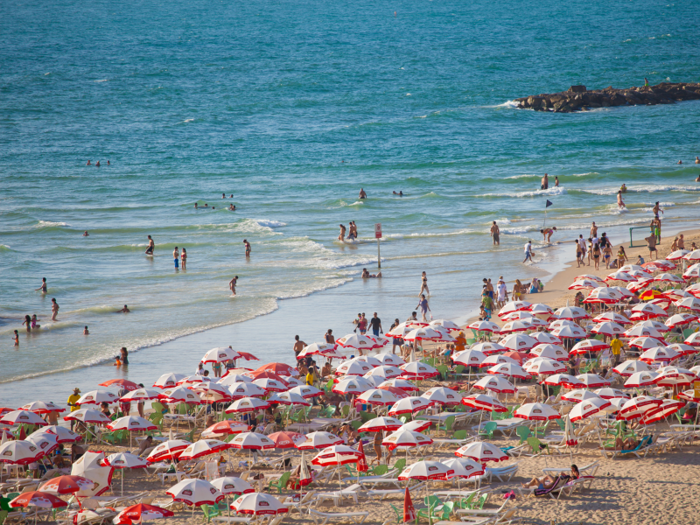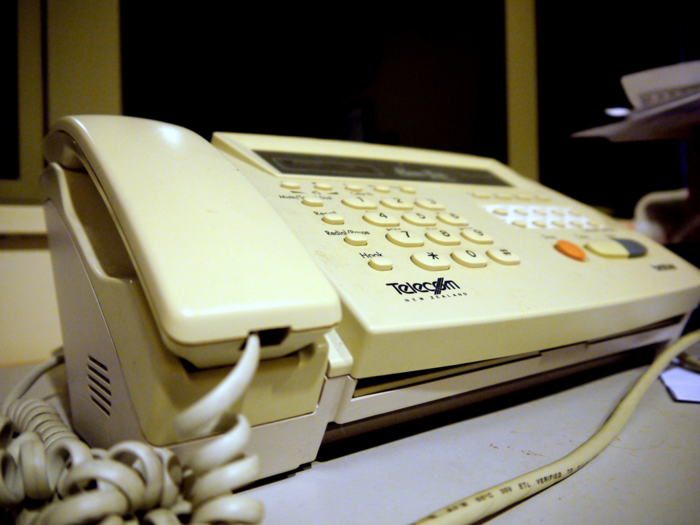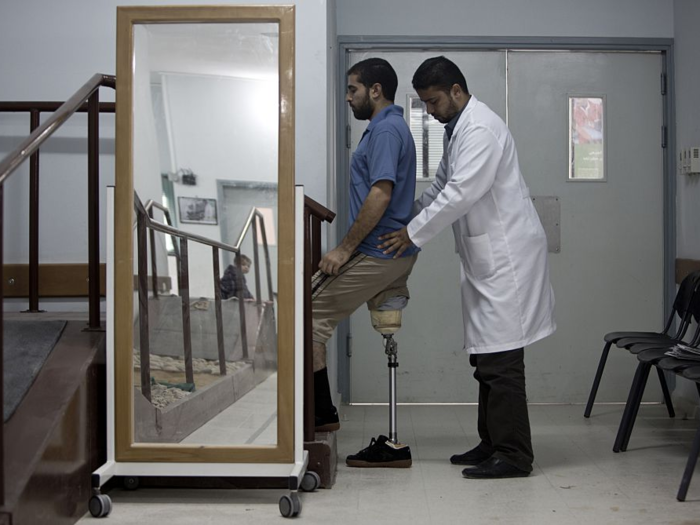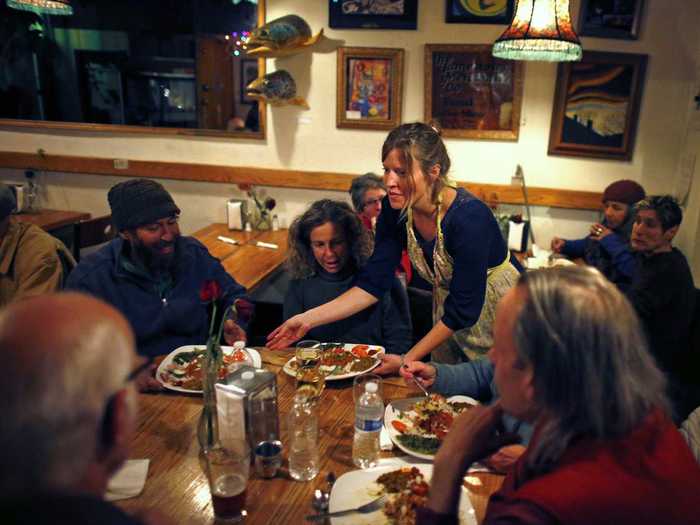- Home
- slideshows
- miscellaneous
- I travel between the US and Israel every 6 weeks - here are the most surprising cultural differences between the two countries
I travel between the US and Israel every 6 weeks - here are the most surprising cultural differences between the two countries
Everything is negotiable in Israel — even your phone bill

No topic of conversation is off limits

The other day I called a cab and the driver almost immediately asked if I was OK because he was picking me up near a hospital.
I’ve had a trainer ask me what I’m eating because I work too hard at the gym to not have less fat (literally those words).
Every time an Israeli comes to my apartment they want a tour — not because my apartment is big or anything special; they just want to see and give their unsolicited opinion.
And everyone asks how much your rent is or for how much you bought your home. The list goes on and on.
Israeli adults spend way more time with their families

My apartment in New York is across the street from my parents', which most people in New York find odd. Many American adults see their families only once or twice a year.
In Israel, if you don’t see your family once a week on Shabbat, at the minimum, you’re outside of the norm. In the same vein, Israelis will invite someone they barely know for Shabbat dinner (either at their own home or at their parents' house) because they don’t want anyone to be alone, especially on a holiday.
When you’re dating, it’s also very common to meet the person’s family within a couple of weeks. Meanwhile, it takes my single American friends months to even confirm whether or not they’re in an exclusive relationship, and it could be a good year before they meet the parents.
Toothpicks are not rude

It’s not considered rude in Israel to use toothpicks at the end of a meal, even at the fanciest restaurants. By the same token, for many Israelis dessert is dried fruit, nuts, and seeds, and it’s not considered rude to crack seeds (like pumpkin) and spit them out at the table.
The only wedding gift is money

In Israel, it’s considered rude to give anything besides money to a couple getting married.
In fact, at some weddings there's even an ATM so you can withdraw money, and they all have a station with envelopes and pens so you can put said money or a check inside. Next to that section there’s a safe, with a slot, so you can pop in your envelope. Most people don’t even give a card — literally just an envelope with their name and money or a check is sufficient.
People value their time in different ways

Some New Yorkers like to say that people go to DC to get into politics, LA to be famous, and New York to win.
That translates into a fervent obsession with work. Working 300 hours a month is not uncommon, nor is answering emails at 1 a.m. or on weekends.
While it’s true that there are many hard working Israelis — my husband works some 300 hours a month, too — most people I meet take their work-life balance very seriously. It’s a nice day? Call in sick and go to the beach!
Nowhere is this exemplified more than in the personal training space. In New York, the most coveted hours with my personal trainer are early in the morning, late in the evening, and on weekends. In Israel, you practically have to beg for a slot at these hours because none of the trainers want to get up early, miss dinner, or work on weekends.
'Jewish food' is not bagels and lox

I realized once I moved to Tel Aviv that only Americans (and in particular New Yorkers) consider "Jewish food" to be bagels, lox, whitefish, herring, and babka.
In fact, while they sell babka in Israel, they don’t call it that. They just consider it “cake.” Nor do they consider rugelach “Jewish food.” Israelis also don’t eat matzo ball soup if it’s not Passover. Good bagels and lox? With the exception of one deli, you can pretty much forget about it.
Designer luxury isn't really luxury

When I told my husband that I grew up with girls who spend more on a handbag than we do on a month’s rent, I had to Google “Chanel bag prices” for him to believe me.
It’s not that Israelis don’t have Chanel bags — there are girls I know who use Chanel for gym bags — but the average Israeli doesn't put the same emphasis on designer fashion. (in no small part because of very high import taxes). Additionally, people don't dress up to the same degree as Americans.
You need a fax machine to reach some doctors

Although Israel has a booming tech industry and is one of the most high-tech countries in the world, many industries still rely on a relic from the past for communication.
On more than one occasion I’ve dealt with a doctor who doesn’t communicate with email or phone, but only via fax.
Everyone has access to good healthcare

While it might be frustrating to ask questions to your doctor via fax, the fact that everyone in Israel has healthcare — and good healthcare at that — makes living here a breath of fresh air compared to the US. Israel even funds fertility treatments, including IVF, making them the only country in the world to do so.
People aren't defined by their job or education

Americans are always asking, fairly early on when meeting someone new, where you went to college and what you do for a living. In Israel, you could know someone for years and have no clue about either.
There's little online shopping

Because you have to pay high customs charges for all orders $75 or over, and shipping is expensive to begin with, very few people shop online in Israel. When I’m in New York I, like many Americans, order everything down to my toothpaste online.
You’re seated at your table right away

One of my biggest pet peeves about dining out when I’m in New York is that they won’t seat you until your entire party has arrived. We all have those reliably late friends and there’s nothing like awkwardly waiting around a packed restaurant entrance to start off a dinner on the wrong foot.
In Tel Aviv, they’ll seat you right away, and even though you’re almost always told when booking a table that you have said table for two hours, they won’t nag you if you linger.
You don't get to choose a type of milk

When I first moved to Tel Aviv, a friend asked me to pick up a cappuccino for her. I asked her what kind of milk she wanted and she responded, completely puzzled, with “the normal kind.”
Even in a health conscious, cosmopolitan city like Tel Aviv, most people don’t specify the type of milk they want when ordering their coffee. Coming from Manhattan, where options include oat, hazelnut, coconut, flax, pea protein, and countless others, along with more common staples like whole milk, 2%, skim, soy, and almond, I needed some time to get used to that.
You don’t tip taxi drivers

Coming from America I’m used to 15% to 20% tip on everything. In Israel the range is 10% to 15%, and taxi drivers don’t expect any tip.
Popular Right Now
Popular Keywords
Advertisement